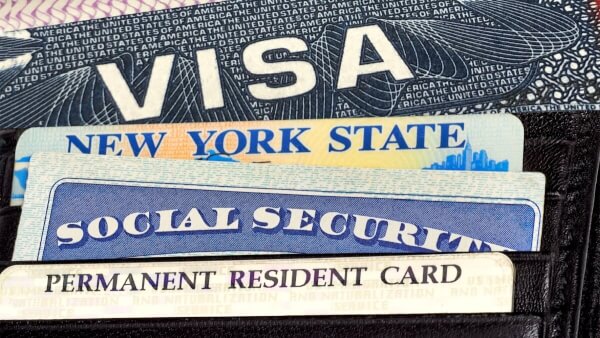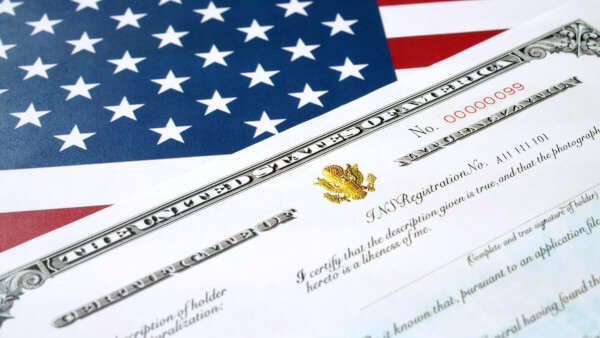Transferring your international driver's license to the US: step-by-step
Your full guide to updating your foreign driver's license to the US.

The US tax code has many rules. If you’re living in the US as a non-resident or as an expat with a visa, you’ll want to understand how taxes work. The way you file depends on your employment status, whether you’re single, and several other factors. Use this guide to help get you started with understanding the ins and outs of American tax rules, due dates, and how to pay what you owe.
In the US, the federal government imposes a tax on income for both individuals and corporations. The tax rate is usually assessed by the amount of income generated during the fiscal year (which is the same as the calendar year), and the jurisdiction where you file.
(Source 12 December 2017)
Each American tax year, also known as the ‘fiscal year’, runs from January 1 - December 31. You’re expected to file your taxes for the calendar year, by the following April 15. Which would mean the deadline for filing taxes for 2017 would be by April 15, 2018.
Tax requirements in the US can change year to year, especially for non-residents or expatriates paying income tax. Make sure to double-check what’s new in 2018 with theUS Internal Revenue Service, or seek advice from a professional.
For instance, in 2018 there will be higher contribution limits for retirement savings, and the personal exemption will grow by $100 - to $4,150. Married couples who file joint tax returns will have a standard deduction of $13,000, and single taxpayers will see standard deductions of $6,500.
(Source 12 December 2017)
US tax rules are generally based on your income. So if your total income is lower than the standard deduction plus one exemption, and if you aren’t dependent on another taxpayer, you’re considered exempt. If you’re exempt, that means you don’t have to file a federal tax return in the US. Anyone else who isn’t exempt has to file and pay taxes - even if you’re an expat. These rules are also based around your age, income type, and filing status.
(Source 12 December 2017)
An individual is considered a ‘non-resident’ if they’re not a US citizen and they haven’t passed either thegreen card test (for future permanency in the US) or thesubstantial presence test.
You pass the green card test if you’re a Lawful Permanent Resident of the USA, which you generally are when you have been issued an alien registration card - aka green card - by the US Citizenship and Immigration Services. Under the substantial presence test, a person is considered a resident if they were in the US 31 days during the current year and 183 days during a 3-year period, including the current year and the 2 years immediately before.
Source 12 December 2017)
A US non-resident who makes an income in the US still has to file a tax return, both to pay US taxes and receive an income tax return. This person’s income is generally divided into 2 categories:
Effectively Connected Income, after allowable deductions, is taxed at graduated rates and are the same rates that apply to US citizens and residents.
FDAP income often consists of passive investment income (i.e. gains from real estate, bond, or personal property sales) and is generally taxed at 30% with no deductions allowed.
(Source 1, Source 2 12 December 2017)
All US citizens or residents living abroad, including students and those on military duty, are expected to file taxes in the US. You have to report your worldwide income to the US, even if you don’t live there, and you have to file in US dollars. If needed, the US does allow a 2-month extension from the normal filing deadline.
Also, there are special allowances when it comes to United States expatriate taxation. If you become an expat and move abroad you can renounce your US citizenship, this means you also give up your resident status and won’t have to file taxes anymore.
For those who became expats on or after June 17, 2008 they must certify with the US tax authorities that they’re expatriates. If you have a net worth of $2 million, or a 5-year average income tax liability exceeding $139,000 – to be adjusted for inflation – you can be considered to be a so called “covered expatriate”. This would mean that the tax authorities will treat your assets as if they’ve been liquidated, on the date prior to your expatriation. They’ll calculate the net gain - this is the difference between the theoretical selling price and the actual purchase price - and if the net gain exceeds $600,000, than the amount above that will be taxed as income for that calendar year. As this can get complicated - fast - it might be a good idea to get some help from a professional to make sure you don’t end up paying too much tax.
(Source 1, Source 2 12 December 2017)
No matter your originating residency or permanent residence, US laws require the following non-citizens to file taxes:
(Source 12 December 2017)
In general, if you’re a foreign non-resident student or scholar in the US on a F-1, J-1, M-1, Q-1, or Q-2 visa, you’ll need to plan to file taxes if you had any income from wages, tips, scholarships, or fellowships. Some of this income might be exempt, especially if it was directly tied to your visa status, but it’s important to double-check with the US tax authorities before filing.
(Source 1, Source 2, Source 3 12 December 2017)
Generally, you’re self-employed under US tax law if:
If you’re a self-employed US citizen living at home or abroad, you must still pay both self-
employment and income taxes if your annual net earnings were $400 or more. However, if you’re a US citizen living abroad, even if your business is in the US and you earn income from it, there may be a chance that you could qualify for the Foreign Earned Income Exclusion (FEIE) and the Foreign Tax Credit (FTC) exclusions. Consult with your accountant to see if this could apply to your circumstances.
(Source 1 Source 2 12 December 2017)
The US has income tax treaties with a number of countries, which reduces or exempts the income tax payments due for residents of foreign countries.
These agreements are with the following countries:
| US Double Taxation Agreements | ||||
|---|---|---|---|---|
| Lithuania | Ukraine | Greece | Kazakhstan | Netherlands |
| Australia | New Zealand | Hungary | Morocco | Cyprus |
| Malta | Czech Republic | Tajikistan | Kyrgyzstan | Norway |
| Azerbaijan | Bangladesh | Philippines | Germany | Pakistan |
| Denmark | Japan | Indonesia | Armenia | India |
| Switzerland | Estonia | Moldova | Luxembourg | Poland |
| Belarus | Finland | Israel | Austria | Russia |
| Belgium | Tunisia | Turkey | Mexico | Romania |
| Spain | Georgia | Jamaica | Ireland | Portugal |
| Canada | Latvia | Egypt | Korea | Slovak Republic |
| Slovenia | South Africa | Bulgaria | Sri Lanka | Sweden |
| Barbados | Iceland | Thailand | Trinidad | France |
| Italy | Turkmenistan | China | United Kingdom | Uzbekistan |
| Venezuela |
(Source 12 December 2017)
You can pay your taxes in one lump sum through check, cash (in some locations), or direct pay from a bank, debit or credit account. There are ways to negotiate long or short-term payments with the US tax authorities, depending on how much you owe and how you made your income (i.e. self-employed, individual, or business). You can also request for a delay in tax collection if you know that your financial situation will improve soon.
When you’re ready to pay, the US allowstax payments online. Snail mail is still an option too, but it’s not encouraged. The automatic online system will have everything ready, you’ll just need your social security number or individual taxpayer ID.
If you have to use your international bank account to pay your US taxes, Wise offers multi-currency borderless accounts and works with banking institutions all over the world to get you the best prices for international transfers. Wise can save your hard-earned money by giving you the mid market exchange rate, the same one you’d find if you googled it, when you transfer between currencies, often offering exchange rates 4-5% better than typical banks and money transfer services. Before you send, make sure the US tax authorities accept third party payments for your taxes. Otherwise, if you have a friend or family member with an American bank account, link it up with your Wise account to reduce the costs you’re paying from abroad.
Paying taxes can be a headache in your home country. Figuring out a foreign tax system is even more challenging. Remember that Wise will help you save on fees and hidden costs when paying for international taxes and can help keep cash in your pocket, no matter where you are.
*Please see terms of use and product availability for your region or visit Wise fees and pricing for the most up to date pricing and fee information.
This publication is provided for general information purposes and does not constitute legal, tax or other professional advice from Wise Payments Limited or its subsidiaries and its affiliates, and it is not intended as a substitute for obtaining advice from a financial advisor or any other professional.
We make no representations, warranties or guarantees, whether expressed or implied, that the content in the publication is accurate, complete or up to date.

Your full guide to updating your foreign driver's license to the US.

Whatever your reason is for moving to the US, this guide aims to help you figure out the most important costs you'll face when you live there.

Find all you need to know about getting a personal loan for H-1B visa holders in this guide.

Everything you need to know about the US certificate of naturalization.

The US welcomes large numbers of new arrivals every year — and getting a great job to both gain experience and set down roots is a core part of the American...

Find everything you need to know about the US citizenship test, including the USCIS questions and answers.